Addictive Prescription Drugs
- By Mike Brock
- •
- 21 Aug, 2023
- •
What are some common addictive prescription drugs?

Tennessee residents who must take prescription medications may find themselves at risk of criminal charges if they ultimately develop an addiction to the drugs they are given. This may come in the form of a driving under the influence charge or another type of drug crime. What may have originated as a legitimate medical need may cause new problems for people in part because of the impact some drugs have on the brain.
WebMD explains that some drugs can literally change the way the brain works and is structured, therefore altering a person’s functioning and contributing to the development of an addiction. Basically this makes a drug addiction a type of disease of the brain.
According to Healthline, the most addictive medications fall into one of three categories: stimulants, depressants or pain-relieving opioids. Stimulants might boost a person’s energy or mental alertness by opening airways and increasing blood flow and heart rate. Examples of these drugs include the amphetamine Adderall and Ritalin.
Depressants on the other hand are used to calm or quiet the brain and central nervous system. Often prescribed for people with sleep problems or anxiety, examples of these addictive drugs include klonopin, xanax and valium.
Pain relief for acute or chronic conditions or needs is often achieved through the use of opioid medications. Codeine, oxycodone, percocet, demerol and darvocet are some of the most commonly used and most highly addictive forms of opioids. These may be needed to help reduce pain after surgery or manage an ongoing back injury or other situation.
(This article taken from www.levittandlevittlaw.com)
If you or a loved one have questions or need assistance with Bail Bond services in the Chattanooga area, The Bail Bondsmen at Gary’s Bail Bonds are ready to help. With more than 20 years of experience in the Bail Bond business, we have the practical experience and knowledge to get you out of jail fast. 24 hours a day, 7 days a week, Gary’s Bail Bonds is there when you need us most. 423-664-1000
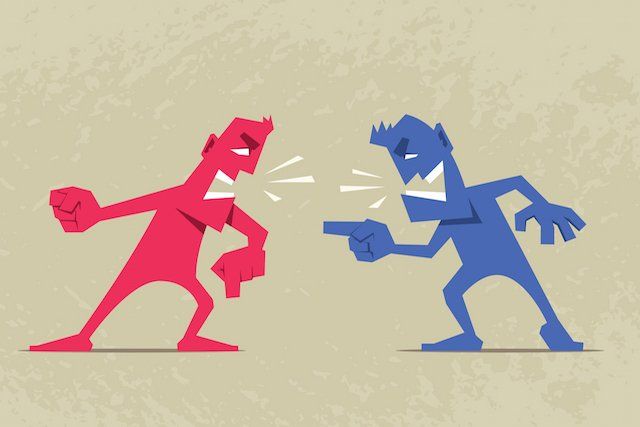
We’ve all heard the saying, “sticks and stones may break my bones, but words can never hurt me.” That’s not exactly true in Tennessee. Sometimes, words can hurt you – legally. While verbal assault may sound like a misnomer, the state of Tennessee considers it a crime if words are used to threaten bodily harm or imply an act of violence against another person. You may find yourself in hot water even if you don’t follow through on the threat!
According to the Tennessee Code (Tenn. Code Ann. § 39-13-101), a person commits assault who:
- intentionally, knowingly or recklessly causes bodily injury to another;
- intentionally or knowingly causes another to reasonably fear imminent bodily injury; or
- intentionally or knowingly causes physical contact with another, and a reasonable person would regard the contact as extremely offensive or provocative.
So, if you threaten someone to the point where they fear for their lives or bodily harm from you, then you can be charged with assault.
How Threats Can Be Used Against You
A threat could be used to prove your intentions to harm another person, thus compounding the severity of the crime. Following through on a threat can result in more severe consequences. In our technology-driven world, evidence of threatening intent has never been easier to obtain. In the past, threats, unless shouted in mixed company, were one person’s word against another’s. Now, whenever you say anything or do anything, you have to assume you are being recorded. Even if you threaten someone over the phone, you have to assume you are being recorded there as well.
Tennessee Codes § 39-13-601; § 39-13-604; and § 40-6-303 state that only one-party consent is required for an electronic recording. It further outlines the following:
“It is not unlawful for an individual who is a party to or has consent from a party of an in-person or electronic communication to record and or disclose the content of said communication unless the person is doing so for the purpose of committing a tortious or criminal act. An individual may also disclose the content of any electronic communication that is readily accessible to the general public.”
(This article taken from www.pattonandpittman.com
)
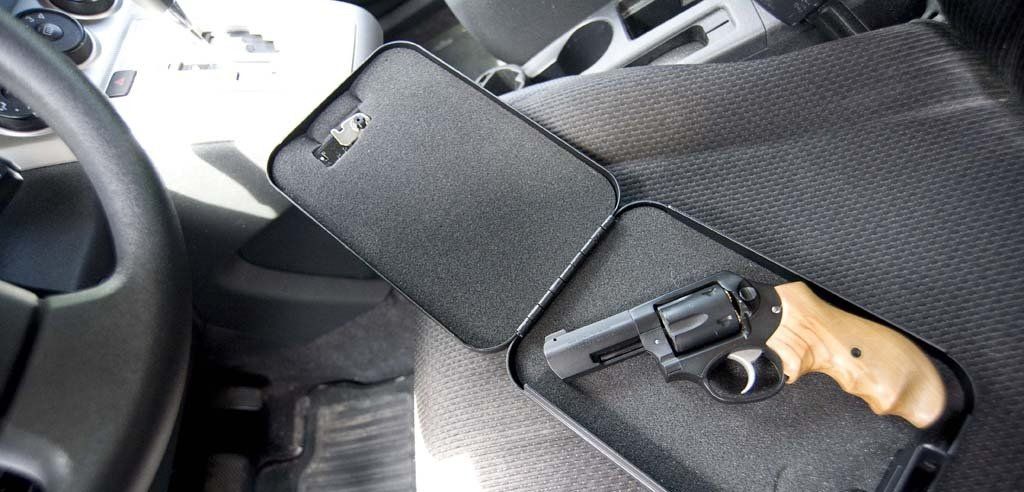
The story has played out in the past. A man is pulled over and tells the officer that he has a gun in the car, but he is permitted to carry. The situation escalates as the officer reacts and now someone is in jail, injured or killed because someone failed to handle the situation properly. As a driver in Tennessee, how do you properly inform a police officer of the presence of a firearm during a traffic stop?
Remain calm and cooperative
Everyone understands that when police approach a vehicle, they don’t know what to expect from the driver. Police act with vigilance to protect themselves and the general public, which is why the presence of a handgun or rifle, even if you are permitted to carry, is alarming to an officer.
If a weapon is concealed, the officer may be unaware of its presence until you inform him or her of it. Acting calmly and cooperatively in this situation is vital to ensuring the safety of both yourself and the officer.
Tennessee law requires disclosure of permit at the request of an officer
According to Beretta, an Italian firearms manufacturer, drivers who conceal and carry weapons should take the following steps:
- Keep your hands on the steering wheel at all times
- Turn on the vehicle’s dome light if it is dark outside
- Only reach for items like your driver’s license when instructed by the officer
- Inform the officer you are carrying if your movement will reveal a weapon, such as one located in the glove box or at the hip.
- Ask the officer how he or she would like you to proceed.
- Produce driver’s license, vehicle registration and permit to carry as required by state law at the instruction of the officer.
Drivers who fail to use caution in this situation or do not have their firearm permit available risk administrative penalties, criminal charges or the escalation of the use of force by an officer.
Understanding how to conduct yourself if you are carrying a firearm during a traffic stop can help protect yourself, public safety and our greater Constitutional rights to bear arms and protections from unreasonable search and seizure.
(This article taken from www.levittandlevittlaw.com )
If you or a loved one have questions or need assistance with Bail Bond services in the Chattanooga area, The Bail Bondsmen at Gary's Bail Bonds are ready to help. With more than 20 years of experience in the Bail Bond business, we have the practical experience and knowledge to get you out of jail fast. 24 hours a day, 7 days a week, Gary's Bail Bonds is there when you need us most. 423-664-1000
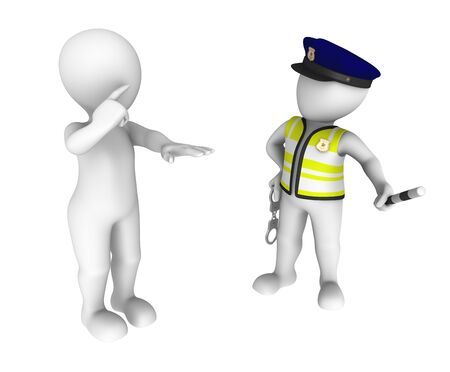
Imagine a police officer in Tennessee suspects you are driving while intoxicated. After you step out of your vehicle, the officer will likely instruct you to perform three roadside tests.
Knowing what to expect during these exams may help you perform them better.
Walk-and-turn test
This test involves taking nine steps in a straight line. Feet must touch at the end of each step. Once you reach the ninth step, turn around and make nine more steps in the opposite direction.
Your arrest is possible if you stumble or your heels and toes do not connect. Officers also look for miscounting and using arms for balance.
One-legged stand test
For this evaluation, you must stand on one leg. While in this position, count out loud until you reach a specified number.
Law enforcement will look for any swaying or loss of balance. Skipping numbers and both feet touching the ground are other indications of inebriation.
Horizontal-gaze test
When you are drunk, your eyes may jerk without your knowing. An officer will look for these automatic movements while you follow a pen or finger from one side to the other. Your head needs to remain still. The inability to stay rigid raises officer suspicion.
Alternative tests
There are other tests not approved by the National Highway Traffic Safety Administration. You may have to count backward, speak the alphabet or touch your nose with your finger. The NHTSA also sets standards for alcohol measurement devices that all officers use.
Getting pulled over for suspicion of drunk driving is a tenuous situation. Follow the instructions and tests that a representative of the law asks you to perform.
(This article taken from www.levittandlevittlaw.com )
If you or a loved one have questions or need assistance with Bail Bond services in the Chattanooga area, The Bail Bondsmen at Gary's Bail Bonds are ready to help. With more than 20 years of experience in the Bail Bond business, we have the practical experience and knowledge to get you out of jail fast. 24 hours a day, 7 days a week, Gary's Bail Bonds is there when you need us most. 423-664-1000
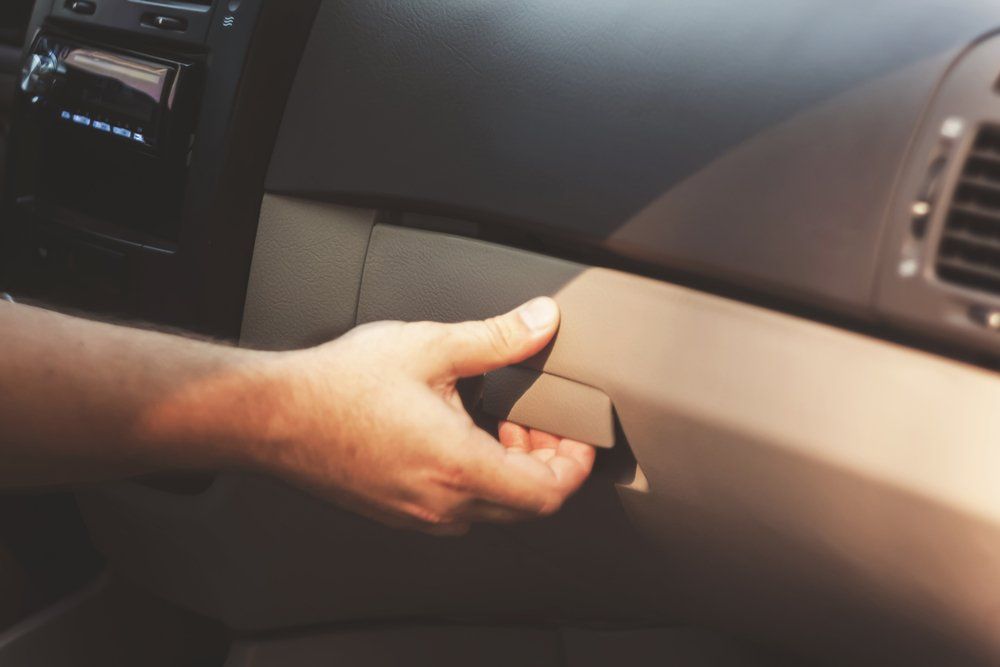
Another part of your vehicle may be off limits from a police search. A ruling by the Ninth Circuit US Court of Appeals determined that a police officer can’t search the glove compartment to find information readily available elsewhere—such as registration.
Michael Curtis Painter was outside of his vehicle after a police chase and crash in Spokane, Washington. After his arrest, an officer opened the glove box in search of registration, finding a handgun inside. Painter isn’t allowed to carry a gun, leading to another criminal charge. The officer needed registration for the accident report, but the court ruled they could have got that information without searching the vehicle because the VIN number can be read from outside of the car and then looked up on a computer.
There are two important criminal defense matters in the story: gun rights and search and seizure.
Gun rights and convictions
This case takes place in Washington state, but we have similar rules here in Tennessee, where convicted felons can't carry firearms. Regardless if you want a gun for hunting, sport or personal protection, you lose those rights after certain convictions. Felonies that are expunged, pardoned or involve less than one year of prison time don’t fall under this restriction, which is why criminal defense can influence not just your current situation, but also what happens later in life.
Illegal search and seizure
The US Fourth Amendment protects Americans from unreasonable searches. “Unreasonable” is a continually evolving definition as technology advances. In this case, the Ninth Circuit ruled that officers can easily get the information they needed (a vehicle’s registration) without opening the glove box. Thus, a search inside the vehicle was unnecessary and unconstitutional. The charges of resisting arrest still stand, but the additional gun charges were dismissed.
An experienced criminal defense attorney will review all aspects of your case, from probable cause and search and seizure to the arrest itself. Defense requires a strong knowledge of the law, not just to review your case, but also to determine the proper charges and to fight for your future rights.
(This article taken from www.levittandlevittlaw.com )
If you or a loved one have questions or need assistance with Bail Bond services in the Chattanooga area, The Bail Bondsmen at Gary's Bail Bonds are ready to help. With more than 20 years of experience in the Bail Bond business, we have the practical experience and knowledge to get you out of jail fast. 24 hours a day, 7 days a week, Gary's Bail Bonds is there when you need us most. 423-664-1000

A conviction from DUI charges is a serious matter that can greatly impact your life and how you live it. A conviction can cost you your job or future employment, your license, or your freedom. Despite what is at stake in these charges, not many people know how to defend themselves against these charges.
Each year, police arrest more than 1.5 million people for driving while under the influence of drugs or alcohol. Because of how common these arrests are, it is important for drivers to know what their options might be.
Improper traffic stops
Police officers need to follow the law during a traffic stop, including having a reasonable suspicion of probable cause to conduct the stop in the first place. If the police pull you over without having a valid reason, an experienced attorney may be able to get a court to dismiss the charges.
Improper testing
Police rely on sobriety tests and breath tests to verify a driver’s sobriety, and the results can be a vital piece of evidence during a trial. If the arresting officer failed to perform a test properly, or if their testing equipment was malfunctioning, they may not be able to prove you were under the intoxication of drugs or alcohol at the time of the arrest.
Duress
If someone forces a drunk person to drive under the threat of injury or death, that action may count as duress. A drunk driver who can prove that they were driving under duress may be able to avoid any charges for the crime since someone else forced them to commit it.
Unavoidable
A driver may be able to avoid a DUI conviction if they can prove that their driving while intoxicated was a matter of life or death. For example, if the driver was at a party, and someone needed a quick ride to the hospital, and the driver was the most capable of driving, there may ground for a strong defense.
Do not give up
If you are facing DUI charges, you may be able to defend yourself from a conviction. Consult with an attorney right away about your charges’ circumstances and what you can do to beat them.
(This article was taken from www.levittandlevittlaw.com )
If you or a loved one have questions or need assistance with Bail Bond services in the Chattanooga area, The Bail Bondsmen at Gary's Bail Bonds are ready to help. With more than 20 years of experience in the Bail Bond business, we have the practical experience and knowledge to get you out of jail fast. 24 hours a day, 7 days a week, Gary's Bail Bonds is there when you need us most. 423-664-1000

Practically speaking, there can be a lot of overlap in how the two crimes are interpreted and charged in any given case. But for the purposes of explanation, we’ll use a simple example scenario to illustrate the difference.
Imagine the following scenario:
Two people get into an argument in a parking lot, they yell back and forth at each other, and then one person picks up a rock and throws it at the other person.
Assault
Assault is commonly defined as “an act that puts the victim in reasonable apprehension of harmful or offensive contact.” The key here is that no actual physical harm needs to occur for the police to charge someone with assault.
Looking at our example scenario, if the person who throws the rock misses the other person and the rock lands harmlessly on the pavement, then that would be considered assault.
It does not matter if the person who threw the rock actually intended to hit the other person, all the matters is if the person the rock was thrown at was reasonably afraid the rock would hit them.
Assault is a misdemeanor violation and is punishable by up to six months in jail (as opposed to state prison) and a maximum fine of $1,000.
Battery
Battery is defined as “any willful and unlawful use of force or violence on someone else.” Battery requires that one person actually inflicts harmful or offensive contact on another person. There is no requirement that the victim suffers a personal injury or bodily harm, only that contact was made.
Going back to our example scenario, if the person who threw the rock actually hit the other person, even if no harm occurred (hard to imagine, but theoretically possible), that would qualify as battery.
If there is no severe bodily harm to the victim, the battery would likely be charged as a misdemeanor and the punishment is the same as misdemeanor assault.
Aggravated Assault & Battery
When the use of a deadly weapon (such as a knife or gun) is used in an assault, and/or if a victim sustains severe bodily harm or injury, then the crimes can be charged as aggravated assault and battery.
Aggravated assault and battery can possibly be charged as felonies. If felony charges are brought, the punishments for those crimes are much more severe, and can result in prison time and huge financial penalties.
If you or a loved one have questions or need assistance with Bail Bond services in the Chattanooga area, The Bail Bondsmen at Gary's Bail Bonds are ready to help. With more than 20 years of experience in the Bail Bond business, we have the practical experience and knowledge to get you out of jail fast. 24 hours a day, 7 days a week, Gary's Bail Bonds is there when you need us most. 423-664-1000

Tennessee, like most states, has specific laws in place regarding different kinds of theft. People can face criminal charges for everything from armed robbery to embezzlement. One form of theft that people tend to think of as not a big deal is shoplifting.
However, shoplifting is a serious criminal allegation that can have long-term consequences. Adults accused of shoplifting could face fines and potential jail time depending on the value of the items involved. Teenagers accused of shoplifting could also face criminal consequences. Their parents could have financial liability for the value of the items involved in the shoplifting offense.
Whether you face a shoplifting charge or your child does, developing a defense strategy is an important way to reduce the likelihood of long-term consequences from what was likely an impulsive or misunderstood act.
Shoplifting charges don’t just result from theft
One of the most common misconceptions about shoplifting is that it only occurs if you leave the store with unpaid merchandise. However, a merchant who catches you in the act of hiding, altering or otherwise manipulating products with the intention of not paying their full retail price could bring shoplifting charges against you.
Examples of situations where someone does not leave the store but still winds up charged with a crime could include:
- Replacing a price tag on one item with a tag from another
- Altering a price tag to change how it rings up
- Putting items inside another item
- Intentionally hiding an unpaid item in a purse, backpack, coat or pocket
- Moving an item into a different container or packaging
- Intentionally manipulating a cash register or similar device
You don’t even have to leave the store for loss prevention or security officers to stop you and charge you with a crime if they suspect these activities. A mistake on their part could result in serious criminal consequences for you or someone you love.
Treat all shoplifting allegations like a serious potential issue
Shoplifting isn’t just a minor issue that results in a slap on the wrist and an obligation to pay the retailer. It is a serious theft charge with real consequences. You or your child could find yourselves dealing with a permanent criminal record as the result of a simple mistake. There is also the potential for jail time and fines if the value of the items is high enough.
Working with a Tennessee criminal defense attorney could help you avoid charges or aid you in defending against them if you are not able to negotiate a solution outside of court. The sooner you sit down to talk about the situation with a defense attorney, the more time you will have to prepare a defense strategy.
(This article taken from www.levittandlevittlaw.com )
If you or a loved one have questions or need assistance with Bail Bond services in the Chattanooga area, The Bail Bondsmen at Gary's Bail Bonds are ready to help. With more than 20 years of experience in the Bail Bond business, we have the practical experience and knowledge to get you out of jail fast. 24 hours a day, 7 days a week, Gary's Bail Bonds is there when you need us most. 423-664-1000
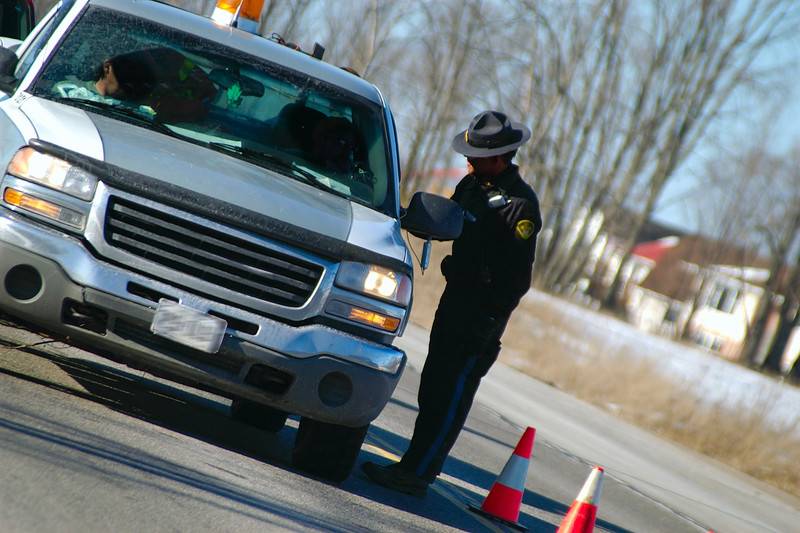
In Tennessee, your driver's license may be suspended or revoked for many reasons. If you drive while your license is suspended or revoked, you could be charged with a misdemeanor. Jail time, fines and other penalties may result.
Reasons for Suspension or Revocation
Your license may be subject to mandatory revocation for certain convictions. For example, your license may be revoked if you are convicted of:
- manslaughter, if it was the result of your driving
- driving under the influence of an intoxicant
- a felony, if a vehicle was used to commit it
- failing to stop if you were involved in an accident that killed or injured someone
- two convictions for reckless driving within 12 months
- possessing five or more grams of meth while driving a vehicle, or
- Vehicle theft. (Tenn. Code. § 55-50-501(a)(c).)
A license may also be revoked if you fail to pay a judgment for damages resulting from negligently driving a vehicle. (Tenn. Code. § 55-50-501(b).)
Your license may be suspended for certain alcohol offenses, including driving under the influence. (Tenn. Code. § 55-10-406.) You may be eligible for a restricted license to drive to work. (Tenn. Code. § 55-50-502(c)(3).)
Your license may also be suspended if you:
have been convicted frequently enough of serious traffic offenses that the state believes you disrespect traffic laws and disregard the safety of others
- are habitually reckless or negligent when you drive
- are incompetent to drive
- fail to appear in court for certain traffic violations
- drop out of school if you are under 18. (Tenn. Code. § 55-50-502(a)(1).)
Reinstating Your License
The period of time your license is under suspension or revocation may vary. You should not drive while your driving privileges are withdrawn. After your suspension or revocation period expires, you may be required to pay a reinstatement fee, pay other fees, and fulfill other conditions before your license is reinstated.
Criminal Charges for Driving on a Suspended or Revoked License
You may be charged with a Class B or Class A misdemeanor if you drive while your license is suspended or revoked.
You may be charged with a Class B misdemeanor for a first offense. In general, the maximum penalty for a Class B misdemeanor is:
- six months in jail, and
- a $500 fine.
You may have a minimum sentence if your license was suspended or revoked due to certain offenses, including vehicular assault, vehicular homicide, and certain alcohol offenses. Your sentence may involve:
- between two days and six months in jail, and
- a maximum $1,000 fine.
For a second or subsequent offense within 10 years, you may be charged with a Class A misdemeanor. The maximum punishment for a Class A misdemeanor may involve:
- up to 11 months, 29 days in jail, and
- a maximum $2,500 fine.
You may have a minimum sentence if your license was suspended or revoked due to certain offenses, including vehicular assault, vehicular homicide, and certain alcohol offenses. Your sentence may involve:
- between 45 days and 1 year in jail, and
- a maximum $3,000 fine.
If you drive a vehicle without an ignition interlock device when you are required to have one, you may be charged with a Class B misdemeanor. Your sentence may involve:
- between seven days and six months in jail, and
- a fine up to $1,000.
In addition, a conviction for driving with a suspended or revoked license may come with an additional $15 fine.
Legal Help for Charges of Driving on a Suspended or Revoked License
A conviction for driving on a suspended or revoked license may come fines and even jail time. These are serious consequences that may cause problems with work or school, with insurance, and with other areas of your life. While Tennessee law provides specific penalties for a conviction, your sentence may depend on the view that your community, prosecutors and judges have of the crime. An attorney who is familiar with how these charges are handled in your area is best able to provide you with information about your individual case.
(This article is taken from www.criminaldefenselawyer.com )
If you or a loved one have questions or need assistance with Bail Bond services in the Chattanooga area, The Bail Bondsmen at Gary's Bail Bonds are ready to help. With more than 20 years of experience in the Bail Bond business, we have the practical experience and knowledge to get you out of jail fast. 24 hours a day, 7 days a week, Gary's Bail Bonds is there when you need us most. 423-664-1000

Practically speaking, there can be a lot of overlap in how the two crimes are interpreted and charged in any given case. But for the purposes of explanation, we’ll use a simple example scenario to illustrate the difference.
Imagine the following scenario:
Two people get into an argument in a parking lot, they yell back and forth at each other, and then one person picks up a rock and throws it at the other person.
Assault
Assault is commonly defined as “an act that puts the victim in reasonable apprehension of harmful or offensive contact.” The key here is that no actual physical harm needs to occur for the police to charge someone with assault.
Looking at our example scenario, if the person who throws the rock misses the other person and the rock lands harmlessly on the pavement, then that would be considered assault.
It does not matter if the person who threw the rock actually intended to hit the other person, all the matters is if the person the rock was thrown at was reasonably afraid the rock would hit them.
Assault is a misdemeanor violation and is punishable by up to six months in jail (as opposed to state prison) and a maximum fine of $1,000.
Battery
Battery is defined as “any willful and unlawful use of force or violence on someone else.” Battery requires that one person actually inflicts harmful or offensive contact on another person. There is no requirement that the victim suffers a personal injury or bodily harm, only that contact was made.
Going back to our example scenario, if the person who threw the rock actually hit the other person, even if no harm occurred (hard to imagine, but theoretically possible), that would qualify as battery.
If there is no severe bodily harm to the victim, the battery would likely be charged as a misdemeanor and the punishment is the same as misdemeanor assault.
Aggravated Assault & Battery
When the use of a deadly weapon (such as a knife or gun) is used in an assault, and/or if a victim sustains severe bodily harm or injury, then the crimes can be charged as aggravated assault and battery.
Aggravated assault and battery can possibly be charged as felonies. If felony charges are brought, the punishments for those crimes are much more severe, and can result in prison time and huge financial penalties.
If you or a loved one have questions or need assistance with Bail Bond services in the Chattanooga area, The Bail Bondsmen at Gary's Bail Bonds are ready to help. With more than 20 years of experience in the Bail Bond business, we have the practical experience and knowledge to get you out of jail fast. 24 hours a day, 7 days a week, Gary's Bail Bonds is there when you need us most. 423-664-1000

The occurrence of domestic violence is, unfortunately, a common issue across the United States and in Tennessee. Many victims of domestic violence suffer for a prolonged period because they feel trapped in their situation and are fearful about reporting the incidents to the police.
While domestic violence is a serious issue, it is also common for domestic violence to be falsely reported, or misreported, just like other criminal accusations. If you have been accused of domestic violence but you believe that you are innocent and you want to defend yourself, you must take the time to understand the law.
The Definition Of Domestic Violence
Domestic violence can take many different forms. Contrary to popular belief, the abuse in question does not need to be physical for it to count as domestic violence under the law. Domestic violence is defined as a pattern of abusive behavior in any form of domestic relationship. The following are the possible types of abuse that could constitute an incident of domestic violence.
Physical Abuse
Physical abuse in any relationship is never acceptable. If a person hits, punches or perpetrates any type of physical violence against someone that they live with or are in a relationship with, this counts as domestic violence. A common defense against an accusation of physical abuse is self-defense.
Sexual Abuse
Sexual activity must always be consensual, regardless of whether the two people are married or not. If a person tries to force or coerce another into any form of sexual relations, it can count as a form of domestic violence.
Emotional Or Psychological Abuse
Domestic violence often involves a combination of emotional and physical abuse, but emotional abuse alone is enough for it to constitute an act of domestic violence. If a person tries to cause fear in another person, tries to damage their self-esteem or somehow alter their perspective on themselves or the way they are thought of by others, it can count as emotional or psychological abuse.
Being found guilty of domestic violence in Tennessee can negatively affect every aspect of your life. If you have been accused of this crime and you believe that you are innocent, it is important that you take swift action to defend yourself.
(This article taken from www.houstonalexander.com)
If you or a loved one have questions or need assistance with Bail Bond services in the Chattanooga area, The Bail Bondsmen at Gary's Bail Bonds are ready to help. With more than 20 years of experience in the Bail Bond business, we have the practical experience and knowledge to get you out of jail fast. 24 hours a day, 7 days a week, Gary's Bail Bonds is there when you need us most. 423-664-1000